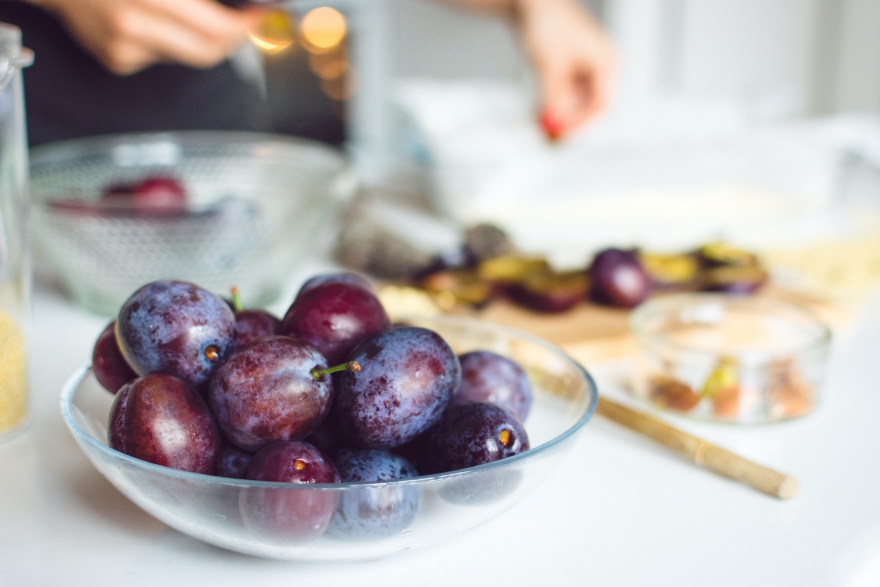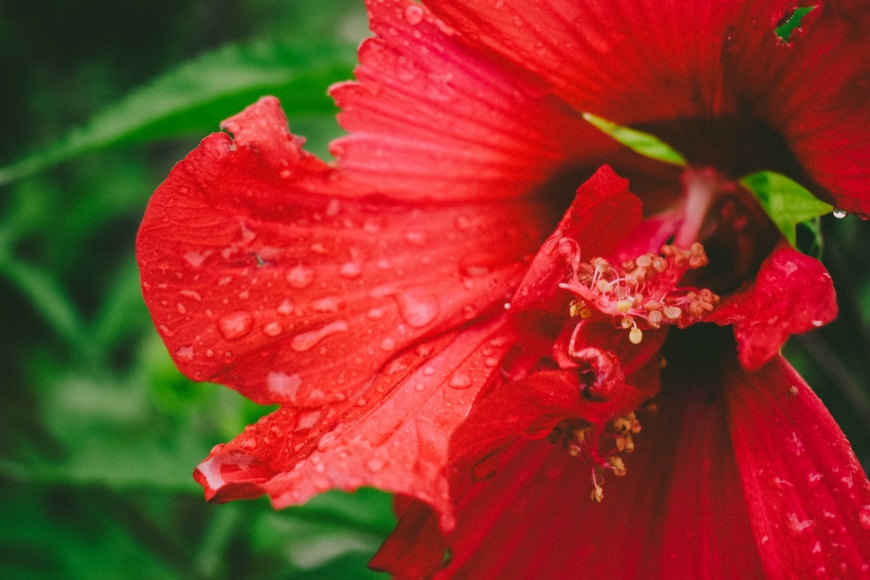Understanding the Jamun Fruit

When you think of herbs, nuts, seeds and spices, jamuns are unlikely to come up. In fact, you have probably merely heard of the fruit in passing. However, you may want to give both the seeds and fruit some more attention. These go by the names Eugenia Jambolana (in Latin) and Jamun Beej (in Sanskrit), and are gaining popularity world over for their medicinal value. The name ‘black plum’ is a common one for jamuns in the west.
The jamun fruit and its seeds are nutrient, vitamin, and antioxidant-rich, and can thus cure both long and short term ailments. For instance, they contain vitamin C, carbohydrates, and proteins, all of which are macronutrients the body needs. Further, it houses iron, calcium, magnesium, and potassium, which function as trace elements. Above all, it carries certain antioxidants (such as flavonoids) and phenolic compounds. These ward away free radicals and improve insulin production.
The Jamun tree is to the Indian subcontinent, but is widely available across Asian countries. It is tall with a heavy trunk. These bear oblong fruits which are initially green. Over time, they turn black or a dark purple in colour, and further develop a sweet taste with mild sourness and astringency. These are available in two forms – either with white or toned flesh, being pectin rich, or with dark purple flesh and lesser pectin.
Benefits
In general, this is a diuretic, anti-scorbutic and carminative fruit. In addition, it is rich in polyphenols, which provide the body with antioxidants and miscellaneous such health benefits. It can thus treat digestive, neurodegenerative, and cardiovascular diseases. For instance, it can keep away strokes, arthritis, asthma, and flatulence, among other ailments. Most importantly, there are some specific benefits to certain functions or organs.
Weight Loss and Diabetes
Jamuns are excellent for weight loss and warding away diabetes. This is because they contain only 3-4 calories per berry. Further, their high alkaloid content can control hyperglycaemia or high blood sugar. The seeds, leaves, and bark extract also serves this purpose.
In fact, regular plum consumption can also benefit overall cardiovascular health. For instance, this reduces high blood pressure and cholesterol levels, both of which are factors of heart diseases.
Digestion
Jamuns can additionally help with relieving constipation. This is due to their high fibre content. It specifically contains insoluble fibres, meaning that it does not dissolve in water. Thus, it adds stool bulk and fastens the rate at which stools move through the digestive tract.
Antioxidant Content
These are one of the richest antioxidant fruits. Thus, these help to reduce inflammation, and thus protect your cells from free radical damage. Further, these contain polyphenol antioxidants. In fact, these contain approximately twice the antioxidant levels of other fruits, such as peaches and nectarines. This is integral to maintaining bone and heart health, as well as blood sugar levels. In addition, they reduce inflammatory markers associated with lung and joint diseases.
Anthocyanins, further, are a powerful type of antioxidant which lower heart diseases and cancer.
Blood Sugar Control
Jamuns contain properties which help with blood sugar control. It is true that they contain substantially high carbohydrate levels. However, they simultaneously increase the adinopectin hormone levels, which stabilises blood sugar. In addition, their high fibre content slows down carb absorption rates after eating. In other words, it enables a steady rise of blood sugar levels rather than spiking.
As a result, they are associated with a lower level of type 2 diabetes.
Bone Health and Density
Jamuns can strengthen bone density and thus prevent conditions such as osteoporosis and osteopenia. In addition, but can reverse bone loss of the past. There are numerous explanations for these effects. For instance, they are antioxidant-rich and can prevent inflammation. Alternatively, they contain certain hormones which enable bone formation.
Further, vitamins and minerals present contain bone-enhancement effects. Vitamin K, phosphorus, potassium, and magnesium are some of these, for instance. These are important as micro elements in strengthening bones over long term. In this manner, they especially help with long-term bone strength.
How to Consume Jamuns
Jamuns are a versatile and hydrating ingredient. While many prefer to consume these raw, you may add this to other recipes as well for a fruity kick. For instance, you can make smoothies, ice cream, and even cake with this recipe. Similarly, you can chop and add it to a salad for a sharp and tangy taste. Following are two jamun-based juice are yogurt recipes respectively.
Jamun Juice
Jamuns make fabulous thirst quenchers. Thus, one of the best ways you can enjoy this is as a summer drink. This replenishes your body of antioxidants and flavonoids. It also prevents you from chronic diseases and radical cell damage. In addition, This recipe contains various other Ayurvedic superfoods which can complement these benefits.
You will require jamun fruits (10-15), chilled water (1 cup), black salt (1/2 tbsp), honey (2 tbsp), ginger (a pinch) and chaat masala (a pinch). Be sure to measure out each of these in the right proportions to enhance the right flavours. However, you may add more or less honey or salt to taste. In addition, You may double or half all the ingredients (keeping proportions the same) depending upon the quantity you wish to make.
First, wash the black plums and pat them dry. Then, remove their seeds and proceed to slicing them. Place the sliced plums in a blender, along with each of the other ingredients. Blend this until it forms a smooth, dark purple liquid. Finally, sieve the juice into a glass and add ice cubes before serving.
Jamun Raita
Yogurt is popularly known as dahi or raita in India. Raitas in particular uses yogurt ripped whipped together with raw or cooked vegetables, such as cucumber, celery, mint, or mint leaves. However, some recipes use fruit as well. This jamun raita recipe, for instance, uses soft and pulpy jamuns which you can enjoy with a pulao or khakras.
First, get together and measure your ingredients. You will need black jamuns (deseeded and finely chopped, 1/2 cup), yogurt (1 cup), cumin seed or jeera powder (1/2 tsp), chopped coriander (1 tbsp). After that, simply combine all ingredients in a bowl and mix well. Don’t forget to add some salt to taste. Lastly, refrigerate this for an hour at minimum. You may add some coriander to top off the raita if you wish.
Takeaways
Jamuns are a sharp, tangy, and antioxidant-packed summer fruit. These contain an array of benefits, ranging from weight loss management to blood sugar control. Above all, these contain both macro and micro elements that keep your body functioning properly. Thus, these are ideal for elders and children alike. Try consuming it as a summer juice or raita to enjoy its hydrating benefits.
Click here to check out some Ayurvedic steps for healthy weight loss.
Click here to take on an Ayurvedic treatment in Kerala with Mekosha.








